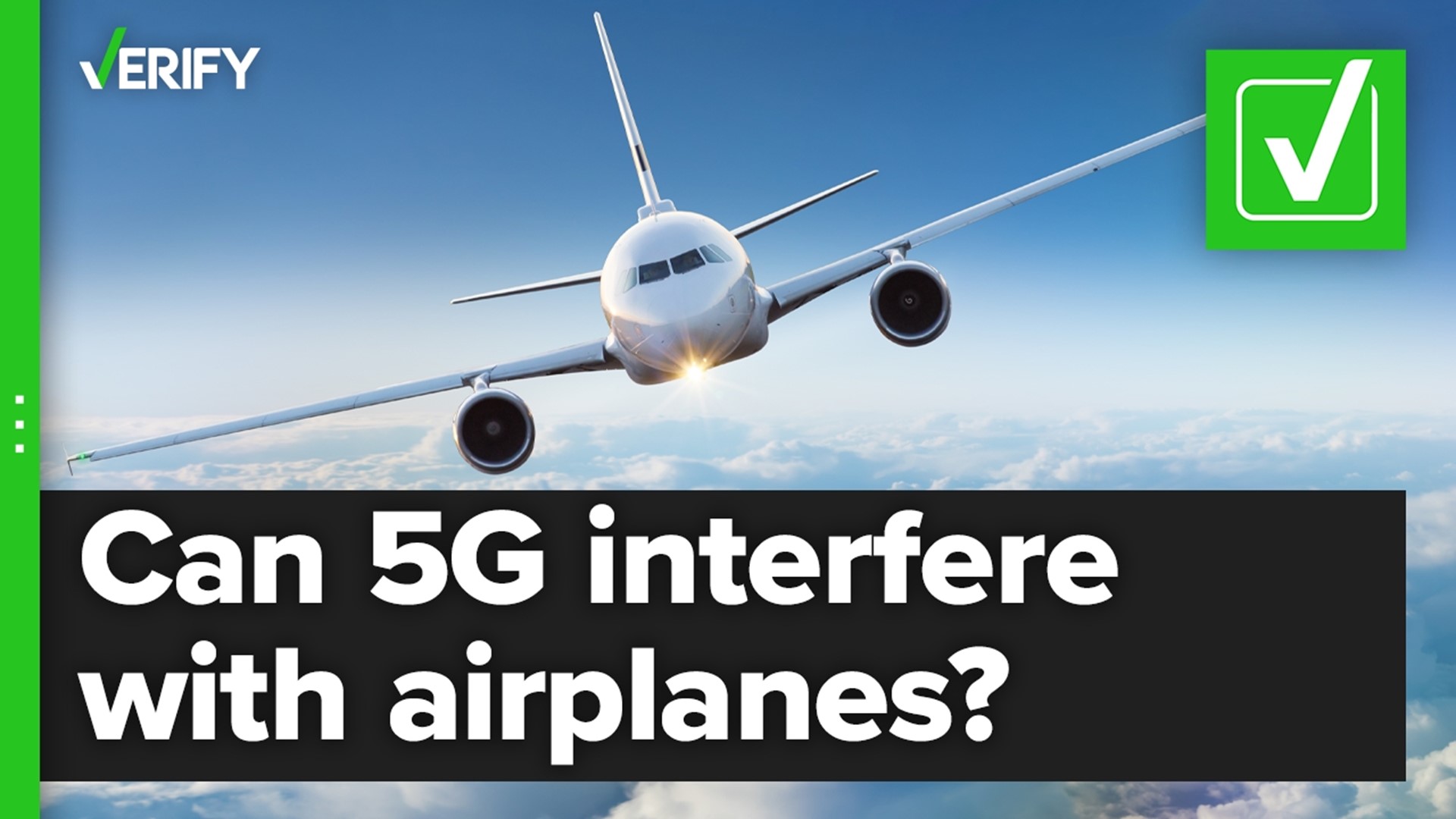DALLAS — Dallas/Fort Worth International Airport and Dallas Love Field will have reduced 5G C-band service when wireless companies debut the service.
The two North Texas airports were included on a list of 50 airports that will have buffer zones for 5G C-band "to minimize potential 5G interference with sensitive aircraft instruments used in low-visibility settings," according to the Federal Aviation Administration.
AT&T and Verizon agreed to turn off their nearby 5G C-band transmitters in these buffer zones for six months. According to the FAA's own website, "the buffer zone will restrict 5G C-band signals for the last 20 seconds of a flight."
Other Texas airports including the Austin-Bergstrom International Airport in Austin, and the George Bush Intercontinental and William P. Hobby airports in Houston are also among airports that will have a 5G C-band buffer.
The 5G C-band technology, which is designed to improve 5G coverage and speed, was scheduled to be activated on Jan. 19, but both Verizon and AT&T have delayed the rollout near certain airports for another two weeks.
The FAA in a statement this month said it consulted with the aviation industry about how 5G C-band might disrupt airport operations. Among the factors considered for the buffer zones were airport traffic volume, low-visibility days and the geographic location.
For example, major airports in Denver, Atlanta and Washington D.C. are not required to have a buffer zone, as 5G C-band technology is not being rolled out in those areas yet.
AT&T and Verizon have gone back and forth with the FAA over the rollout of 5G C-Band, but the two sides ultimately agreed on the buffer zones. The FAA has expressed concern that 5G signals "could interfere with the accuracy of an airplane's radio altimeter, without other mitigations in place," the agency said in a statement to The Verge earlier this month.
AT&T CEO John Stankey and Verizon CEO Hans Vestberg have pushed back on proposed FAA restrictions, arguing in a joint letter that 5G C-Band technology is "every bit as essential to our country's economic vitality, public safety and national interests as the airline industry," The Verge reported.
In a letter to the AT&T and Verizon executives late last month, Transportation Secretary Pete Buttigieg and FAA Administrator Steve Dickson acknowledged the importance of 5G C-band.
"At the same time," they wrote, "absent further action, the economic stakes for the aviation industry and the disruptions the traveling public would face from commercial launch of C-Band service on January 5 are significant, particularly with the ongoing stress and uncertainty caused by the coronavirus pandemic."
In a statement on Jan. 18, AT&T officials expressed more frustration when announcing the two-week delay of 5G C-band deployment for certain areas near airports.
"We are frustrated by the FAA’s inability to do what nearly 40 countries have done, which is to safely deploy 5G technology without disrupting aviation services, and we urge it do so in a timely manner," the statement said.

